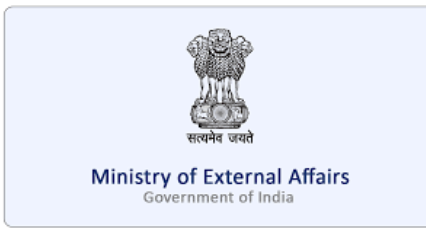Ministry of External Affairs (MEA)
The Ministry of External Affairs (MEA) is the central government agency responsible for conducting and managing India’s foreign relations and diplomatic affairs. It is headed by the Minister of External Affairs, who is a cabinet member and reports directly to the Prime Minister of India. The MEA plays a crucial role in formulating and implementing India’s foreign policy, promoting the country’s interests abroad, and fostering friendly relations with other nations.
History and Establishment
The origins of the MEA can be traced back to the British colonial era, when the Foreign Department was established in 1783 to handle the East India Company’s diplomatic relations. After India gained independence in 1947, the Foreign Department was transformed into the Ministry of External Affairs and Commonwealth Relations. In 1948, the ministry was renamed the Ministry of External Affairs.
Organizational Structure
The MEA is headed by the Minister of External Affairs, who is assisted by the Minister of State for External Affairs and the Foreign Secretary. The Foreign Secretary is the head of the Indian Foreign Service (IFS) and is responsible for the day-to-day administration of the ministry. The MEA has several divisions and departments, each focusing on specific geographical regions or functional areas, such as:
- Territorial Divisions: East Asia, West Asia and North Africa, Central Europe, Latin America, etc.
- Functional Divisions: Economic Diplomacy, Consular, Passport & Visa, Protocol, etc.
- Specialized Divisions: Disarmament and International Security Affairs, United Nations Political, etc.
Functions and Responsibilities
The primary functions and responsibilities of the MEA include:
- Formulating and implementing India’s foreign policy
- Conducting diplomatic relations with foreign countries and international organizations
- Protecting the interests of Indian citizens abroad
- Promoting India’s trade, commerce, and cultural relations with other countries
- Negotiating international treaties and agreements
- Representing India at the United Nations and other international forums
- Managing India’s diplomatic missions abroad, including embassies and consulates
Diplomatic Missions and Consular Network
India has an extensive network of diplomatic missions and consular posts worldwide. As of 2021, India has:
- 192 Indian missions abroad, including embassies, high commissions, and permanent missions to the United Nations
- 86 consulates, deputy high commissions, and representative offices
- 54 honorary consulates
These missions and posts are responsible for representing India’s interests, providing consular services to Indian citizens, and promoting trade and cultural relations with the host countries.
Foreign Policy Initiatives
The MEA has been actively engaged in shaping India’s foreign policy and promoting the country’s strategic interests abroad. Some of the key foreign policy initiatives undertaken by the MEA in recent years include:
- Neighborhood First Policy: Focusing on improving relations and cooperation with India’s immediate neighbors
- Act East Policy: Enhancing engagement with the countries of Southeast Asia and the wider Indo-Pacific region
- Link West Policy: Strengthening ties with the countries of West Asia, particularly the Gulf Cooperation Council (GCC) states
- India-Africa Forum Summit: Promoting cooperation and partnership with African nations
- International Solar Alliance: A global initiative to promote the use of solar energy, with India playing a leading role
Diplomatic Initiatives and Soft Power
The MEA has also been actively promoting India’s soft power and cultural diplomacy. Some of the notable initiatives in this regard include:
- Indian Council for Cultural Relations (ICCR): Promoting Indian culture and arts abroad through cultural exchanges, exhibitions, and performances
- Overseas Indian Affairs: Engaging with the Indian diaspora and addressing their concerns and interests
- Buddhist Diplomacy: Leveraging India’s Buddhist heritage to strengthen cultural and people-to-people ties with countries in South, Southeast, and East Asia
- Yoga Diplomacy: Promoting yoga as a global phenomenon and a means of cultural connection, with International Day of Yoga being celebrated annually on June 21
Challenges and Future Outlook
The MEA faces several challenges in navigating an increasingly complex and multipolar world order. Some of the key challenges include:
- Managing relations with neighboring countries, particularly Pakistan and China, in the face of ongoing territorial disputes and security concerns
- Balancing India’s strategic partnerships with major powers such as the United States, Russia, and Japan
- Addressing the impact of global issues such as climate change, terrorism, and cybersecurity on India’s foreign policy
- Promoting India’s economic interests and attracting foreign investment in a highly competitive global environment
Despite these challenges, the MEA remains committed to advancing India’s foreign policy objectives and promoting the country’s interests on the global stage. As India continues to rise as a major economic and political power, the role of the MEA in shaping the country’s foreign relations and diplomatic engagements will remain crucial in the years to come.


